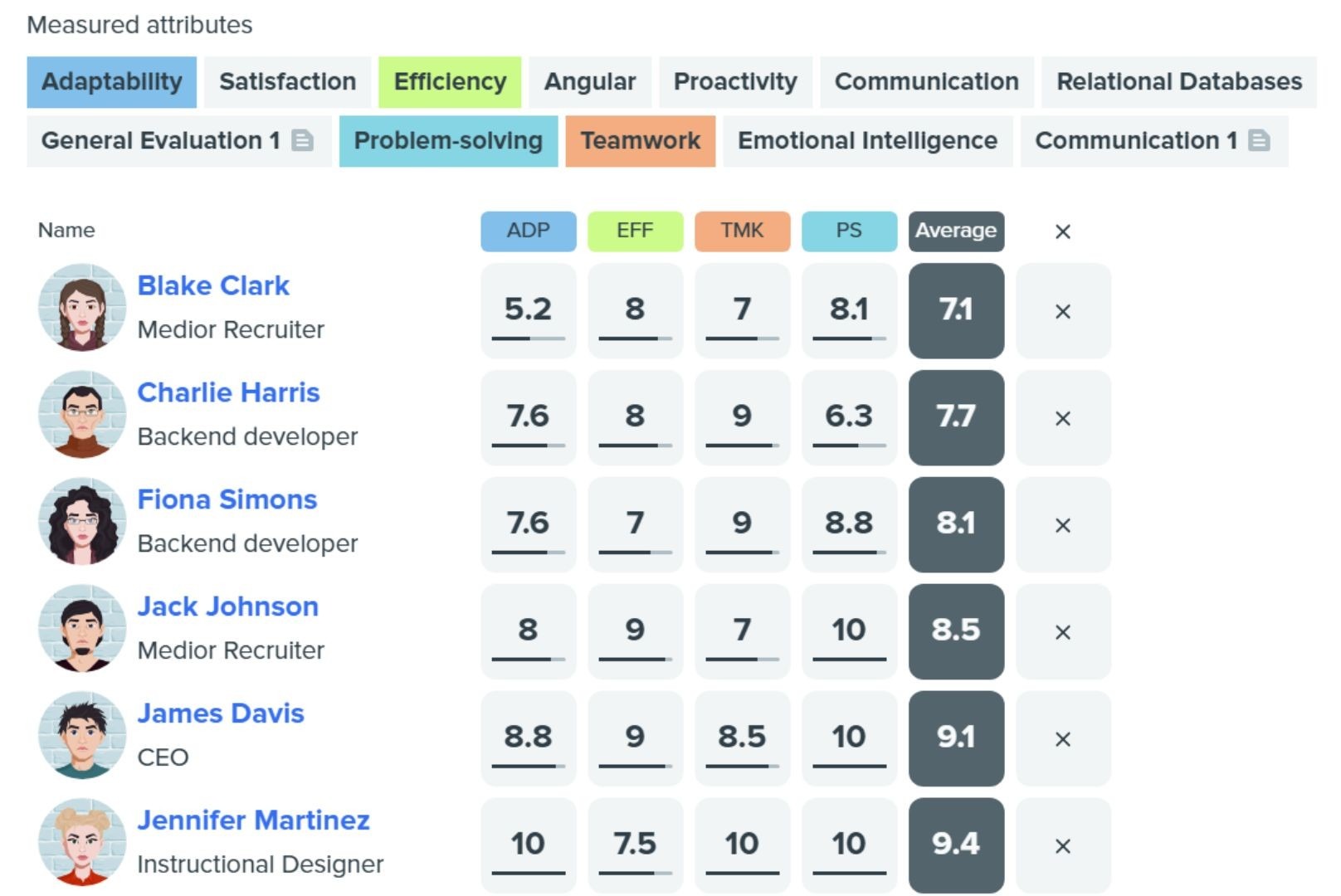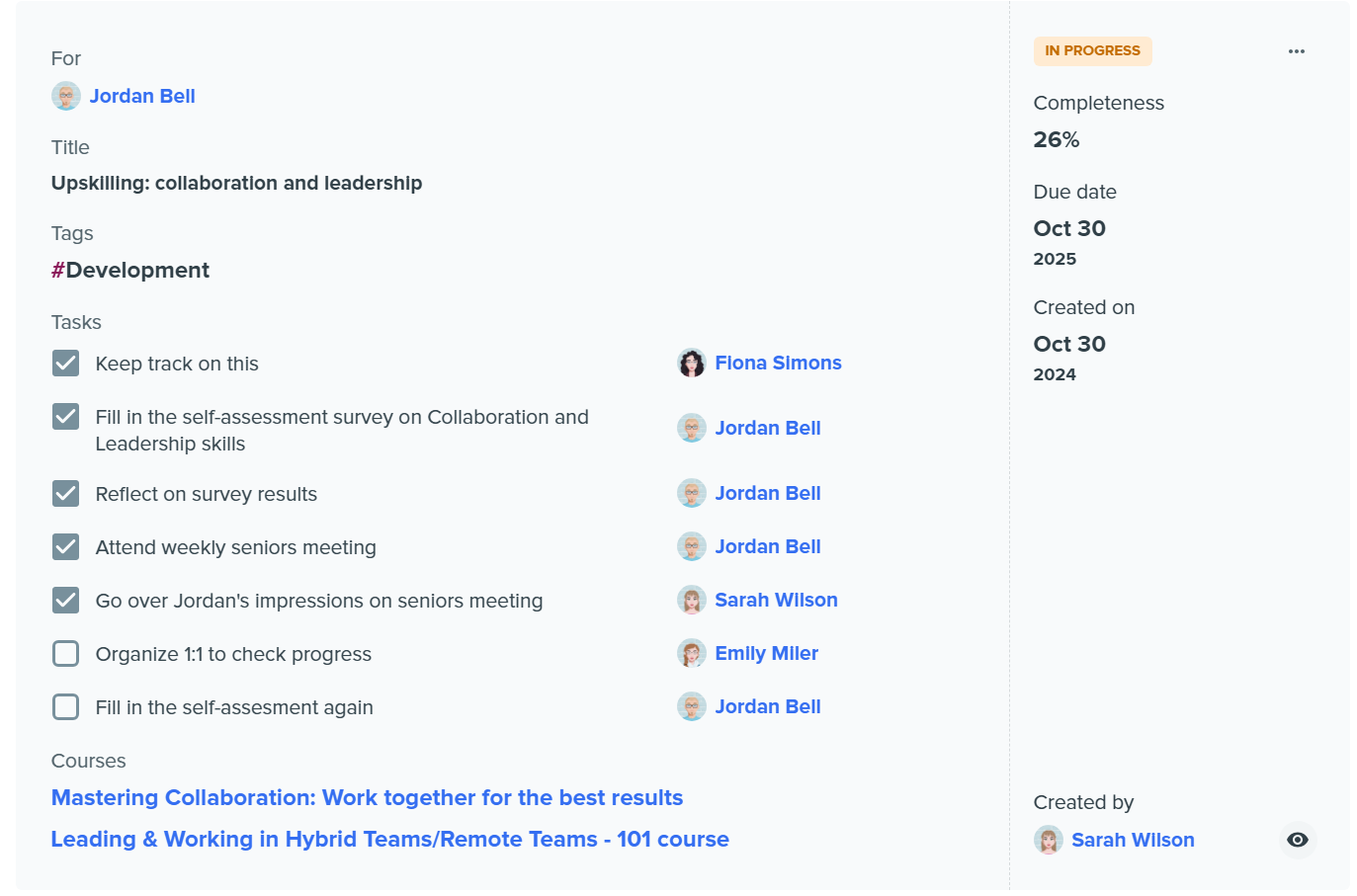Technical skills get teams hired. But it’s soft skills that keep them running.
When teams work asynchronously, even minor communication gaps can result in significant delays. Handoffs between roles often break down because expectations aren’t shared. And while some engineers excel at building features, they struggle when asked to lead or collaborate cross-functionally.
Most project delays in tech don’t come from missing frameworks. They often stem from a lack of skills in communication, collaboration, and self-management.
Managers know this. Still, soft skills development is rarely structured. Feedback stays vague. Training is treated as a checkbox. And nobody’s quite sure how to measure progress.
In this article, we’ll break down which soft skills matter most in tech and what to prioritize in 2025 in your team.
Why soft skills development matters more in tech than ever
Tech teams are more connected and more distributed than ever. This creates more opportunities for misunderstandings, misalignments, and missed context.
Today, engineers don’t just write code. They review pull requests, lead client calls, manage cross-functional projects, and mentor junior teammates. None of that works without clear communication, emotional intelligence, and adaptability.
And then there’s AI.
As more technical execution becomes automated, the skills that remain human, like judgment, prioritization, and collaboration, become even more critical. It’s not that soft skills replace hard skills. It’s that tech now runs on both.
💡 According to Forbes, 92% of employers say soft skills development matters as much or more than technical skills development, and 89% of hiring failures happen because of soft skills, not hard skills.
This shift is already evident in hiring practices. Productive teams aren’t just staffed with top coders; they’re made of people who can lead, adapt, and communicate under pressure. And that’s something no certificate covers.
What most teams get wrong about soft skills development
Most teams agree that soft skills development matters, but the way they train for them often says otherwise.
A manager sends out a slide deck. HR shares a video course. Someone runs a one-off “communication workshop” during a team day. Then… nothing.
There’s no baseline. No follow-up. No feedback loop. And no visible change.
The core problem? Soft skills are often viewed as personal traits rather than team competencies. But just like technical skills, they can (and should) be observed, developed, and improved with structure.
💡 According to McKinsey, 69% of companies have increased their investment in skill-building since 2020, with the strongest focus on social, emotional, and cognitive skills.
Despite that, most teams still rely on generic content with no context, no way to measure impact, and no reinforcement in daily work.
When feedback is vague —“communicate better” or “show more initiative” — employees don’t know what to improve. And without their managers' support, nothing sticks.
What soft skills to prioritize in tech in 2025
Not all soft skills are created equal, especially in tech teams. In 2025, the most valuable ones aren’t generic traits like “being nice” or “having a good attitude.” They’re specific, observable behaviors that impact how teams ship, align, and grow together.
Here’s what to prioritize:
1. Communication in async/hybrid environments
Whether it’s writing clear updates, giving feedback in code reviews, or documenting decisions, clarity saves time. Poor communication slows teams more than bad tooling.
✅ Look for: structured written updates, thoughtful comments, clarity in pull requests, and tickets.
2. Cross-functional collaboration
Developers who can explain constraints to designers. Engineers who can work with product managers without friction. Collaboration across roles isn’t soft; it’s strategic.
✅ Look for: ability to listen, ask clarifying questions, and build alignment between disciplines.
3. Adaptability
New tools, shifting priorities, reorgs. Teams that can’t adapt stall. Adaptability isn’t chaos tolerance; it’s composure in the face of change.
✅ Look for: comfort with ambiguity, open-mindedness, and willingness to try new approaches.
4. Leadership soft skills development
Even before someone manages people, they’re often leading projects or mentoring peers. Influence matters just as much as authority.
✅ Look for: giving constructive feedback, leading discussions, mentoring others, and making decisions under pressure.
5. Self-management
Deadlines, priorities, focus. In a remote or hybrid setup, self-direction matters more than ever.
✅ Look for: ownership of tasks, clarity in status updates, proactive problem-solving, and emotional regulation.
How to approach soft skills development as a manager
You can’t improve what you don’t define. Soft skills aren’t developed through one-off workshops. They need context, reinforcement, and visibility.
Here’s how tech managers can actually drive soft skills development inside fast-moving teams.
1. Start with a baseline
Use structured self-assessments, peer assessments, and manager assessments to identify strengths and gaps. Not just “Is this person a good communicator?, but “Can they write clear async updates?” or “Do peers find their feedback helpful?”
The goal isn’t to assign scores but to understand where each person stands.
2. Prioritize by role and impact
Not everyone needs the same skill. A team lead might need coaching and delegation, while a backend engineer might require more transparent cross-team communication.
Map soft skills to role expectations and real project needs, not a generic checklist.
3. Make training contextual and practical
Most people won’t improve their soft skills solely from a video course. Use role-play in retrospectives, structured feedback sessions, or brief coaching moments during one-on-ones.
Instead of telling someone to “be more proactive,” build real scenarios where that behavior is expected and supported.
4. Reinforce through regular 1-on-1s
Soft skills development doesn’t happen in isolation. Use 1-on-1s to follow up on feedback, reflect on specific situations, and track small changes over time.
This makes growth visible and builds trust between the manager and the team members.
How Amazon scaled soft skills development across the organization
A concrete example comes from Amazon, which has committed $1.2 billion to upskill more than 300,000 employees, not just in technical areas but also in soft skills such as communication, leadership, and adaptability.
The initiative includes programs such as Machine Learning University and Career Choice, but what stands out is the focus on transferable soft skills that help individuals transition into new roles or lead teams more effectively.
According to Amazon, the goal is to build “readiness for the next job,” and that includes how employees collaborate, communicate, and lead under pressure.
This approach demonstrates what’s possible when soft skills are treated as business-critical rather than optional. Instead of vague training, Amazon invested in role-based pathways, progress tracking, and career mobility, with soft skills as a core component.
Managers weren’t left guessing what “better communication” looks like. Employees had real programs, and the company had a clear metric: internal mobility, not just knowledge retention.
How Kadar helps managers build soft skills in tech teams

Amazon can invest billions in upskilling at scale. Most tech organizations can’t. However, the need remains the same: more transparent communication, improved collaboration, and more confident leadership, especially in growing teams.
Kadar provides the structure for soft skills development without requiring you to build a program from scratch.
Here’s how it works:
- Predefined soft skill survey templates
Skip the blank screen. Kadar includes ready-to-use questions for communication, collaboration, feedback, initiative, and more.

- Self, peer, and manager feedback in one view
See how people perceive themselves and how the team sees them side by side. No more guesswork about where someone stands.

- Tailored action plans
Instead of vague advice, employees receive specific development goals tied to their role and project context, all of which are trackable over time.

- 1-on-1s linked to real growth
Soft skill topics don’t disappear after a review. In Kadar, they feed directly into future check-ins and are part of an ongoing loop.

- Hard and soft skills in the same matrix
You don’t have to choose. Kadar lets you track both technical depth and human impact in one place.

Unlike most HR tools, Kadar is built for tech teams that want structure without complexity. It helps managers develop fundamental skills with visible outcomes rather than just sending a training link and hoping for the best.
Soft skills aren’t a bonus, but the bottleneck
Your team can ship fast, write clean code, and hit deadlines, and still miss the mark if collaboration breaks down.
In 2025, soft skills development isn’t a “nice to have.” It’s what separates teams that just deliver from those that lead, align, and grow. However, without structure, those skills remain vague, difficult to evaluate, and even harder to improve.
Kadar gives managers the tools to map, measure, and develop soft skills with the same clarity they bring to technical ones.


